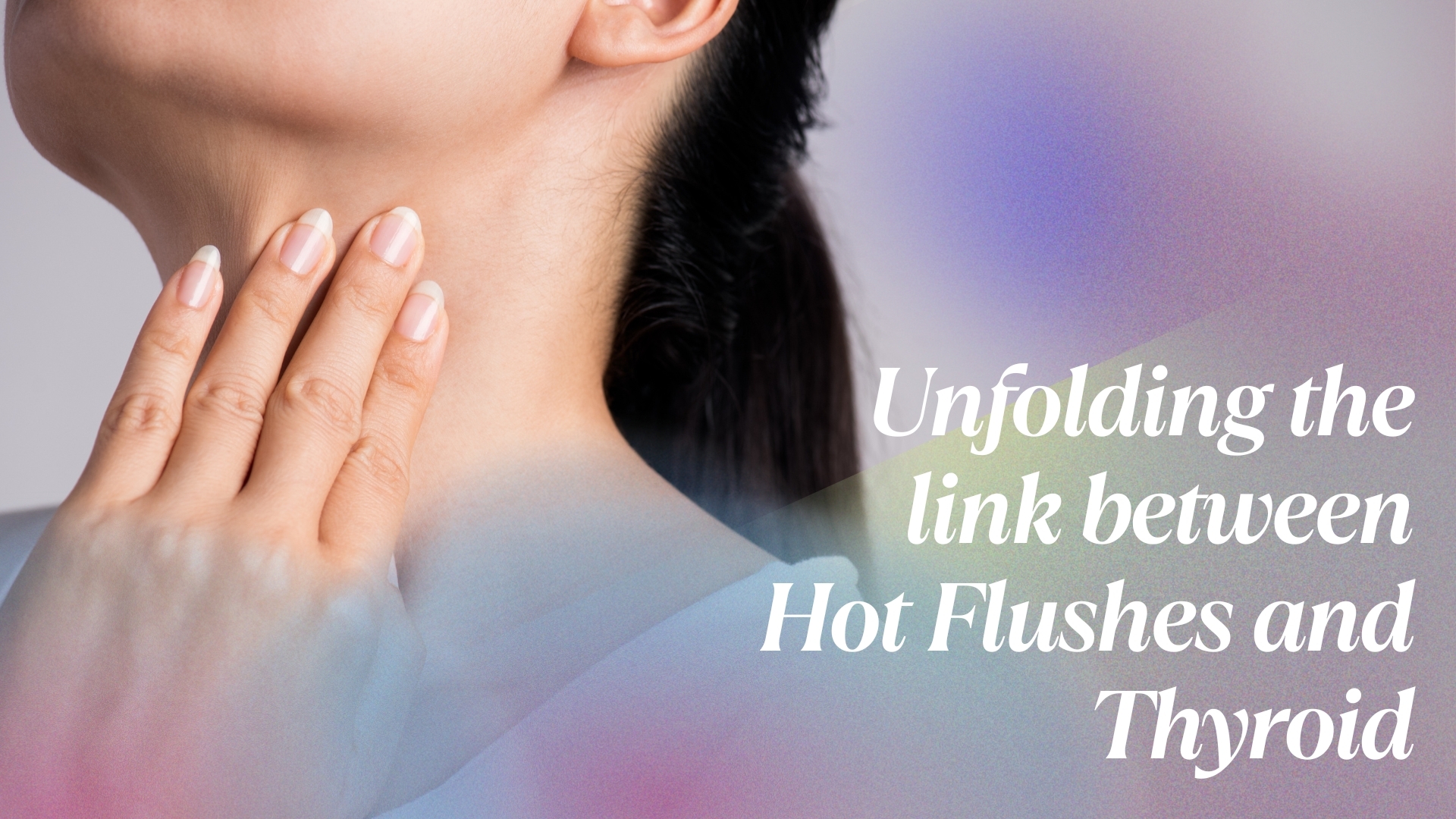
Did you know that Hot flashes, a hallmark symptom often associated with menopause, can also signal underlying thyroid issues? Understanding the intricate connection between hot flashes and thyroid health is vitally important for effective management and symptom relief.
Thyroid Function Overview
The thyroid gland, situated in the neck, plays a pivotal role in regulating metabolism and hormone production. Thyroid hormones, including thyroxine (T4) and triiodothyronine (T3), influence various bodily functions, including regulation of temperature. When the thyroid gland becomes imbalanced, it can disrupt the body’s ability to maintain a stable internal temperature, leading to fluctuations that may manifest as hot flashes.
Thyroid Disorders and Hot Flashes
Thyroid disorders, such as hyperthyroidism and hypothyroidism, can both contribute to the occurrence of hot flashes. In hyperthyroidism, an overactive thyroid gland produces excessive amounts of thyroid hormones, accelerating metabolism and generating heat. This metabolic overdrive can trigger hot flashes, causing sudden waves of intense heat and sweating. Conversely, hypothyroidism, characterized by an underactive thyroid gland, slows down metabolism, impairing the body’s ability to regulate temperature effectively. As a result, individuals with hypothyroidism may experience hot flashes as their body struggles to maintain homeostasis.
Identifying Symptoms
Distinguishing between symptoms of thyroid disorders and menopause can be challenging due to their overlapping nature. Hot flashes, accompanied by other signs such as fatigue, weight changes, and mood swings, may indicate thyroid dysfunction rather than solely menopausal symptoms. It is essential for healthcare professionals to conduct thorough evaluations, including thyroid function tests, to accurately diagnose and differentiate between these conditions.
Diagnosis and Treatment
Diagnosing thyroid disorders typically involves assessing levels of thyroid-stimulating hormone (TSH), T4, and T3 through blood tests. Treatment options vary depending on the specific thyroid condition diagnosed. In hyperthyroidism, treatment may include medications to inhibit thyroid hormone production, radioactive iodine therapy, or surgical intervention. Conversely, hypothyroidism is often managed with synthetic thyroid hormone replacement therapy to restore hormone levels to normal. By addressing the underlying thyroid dysfunction, healthcare providers can effectively alleviate hot flashes and other associated symptoms.
Lifestyle Strategies for Management
In addition to medical interventions, lifestyle modifications play a crucial role in managing thyroid disorders and alleviating hot flashes. A balanced diet rich in iodine, selenium, and other essential nutrients supports thyroid health and overall well-being. Stress-reducing practices such as yoga, meditation, and deep breathing exercises can help mitigate hot flashes by promoting relaxation and hormonal balance. Regular physical activity enhances metabolism and improves blood circulation, contributing to better temperature regulation and symptom management. Adequate sleep and hydration are also essential for supporting thyroid function and minimizing HotFlash episodes.
In conclusion, hot flashes can be indicative of underlying thyroid dysfunction, emphasizing the importance of comprehensive thyroid health assessment in individuals experiencing these symptoms. By understanding the intricate relationship between hot flashes and thyroid function and implementing tailored management strategies, individuals can find relief and improve their overall quality of life. Collaboration with healthcare professionals is crucial for accurate diagnosis and personalized treatment, ensuring effective management of thyroid disorders and associated symptoms. With a multifaceted approach encompassing medical interventions, lifestyle modifications, and supportive care, individuals can navigate the challenges of thyroid-related hot flashes with confidence and resilience.
Resources:
https://health.clevelandclinic.org/you-think-its-menopause-but-could-it-be-a-thyroid-disorder
Stay up to date with our offers and events
Copyright © 2024 Unpause Ru Medical. All rights reserved.
Powered by TKV Creatographics